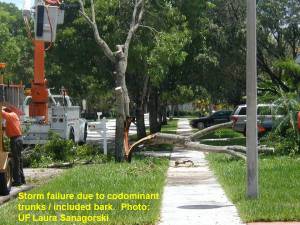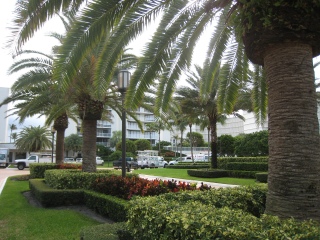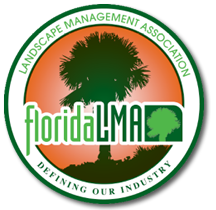Green industry professionals are dealing with the aftermath of last week’s tropical storm force winds.  Here are some tips for responding to customer concerns over wind-damaged trees:
Here are some tips for responding to customer concerns over wind-damaged trees:
Palm fronds that are damaged or hanging should remain on the palm. This will help the palm to maintain critical nutrition as it recovers and could make the difference between a palm surviving or not. It may be 6 months or more until you can make a determination whether severely damaged palms will survive. Water is critical right now – irrigate as needed.
Trees should generally be saved and restored when: Some major limb(s) are broken but intact lower limbs are available to cut back to, the canopy is only defoliated, only some large limbs are broken, trees which are in reasonably healthy condition and have relatively SMALL (<6” diameter) trunk diameters are fallen or leaning, and when major anchoring roots have not been fractured.
Trees should generally be removed when: a large co-dominant leader has split out of the lower trunk (such as in the photo above), the lower trunk is cracked or broken, major roots are severed or broken, the tree is leaning towards a target, the remaining tree structure is highly susceptible to breakage, the tree is a nuisance tree or in poor health.
Click here to download a printer-friendly version of this post with further detail and more references: Hurricanes Deciding What to Do.







